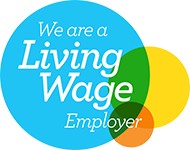Talking digitalisation, manufacturing and video tapes with Dr John R. Thomas
By Dr John R. Thomas, SMART Digital Accelerator
Wednesday, January 4, 2023
Dr John R. Thomas is a consultant and lecturer with over 40 years of experience introducing state-of-the-art skills and techniques to diverse industries. He is also an expert adviser on the SMART Digital Accelerator team at University of Wales Trinity Saint David.
Following a Degree in Chemistry and a PhD in Synthetic Organic Chemistry, John spent the first 20 years of his career, gaining operational management experience in small and large companies, working for and with firms such as 3M, Rexam, Nissan, and Toyota.
For the past 20 years, he has run his ownmanagement consultancy, specialising in the development and implementation of world class techniques aimed at creating sustainable step changes in business performance and profitability.
In his role as an Industrial Fellow of Cambridge University, John headed a team on behalf of the Institute for Manufacturing, working with the Welsh Government to develop innovative services to support small and medium-sized companies in Wales.

Can you tell me about your current role/business and what you do? Is it just manufacturing clients you work with?
Although most of my work is centred around manufacturing, I do work in a range of sectors.
What is interesting though, is that key management principles apply across all these fields, even in such diverse sectors as food processing and the voluntary sector. They just need to be applied in a more subtle way.
How did you get into the manufacturing sector initially?
Having decided I did not want to become a full-time academic, I applied for a job with 3M.
Thinking I would be an Industrial Chemist, I suddenly found myself as a Process Engineer on the team making the first video cassettes in Europe – the launch of Scotch VHS and Betamax.
It was an extremely exciting time, as we were not only at the forefront of new technology but simultaneously changing behavioural patterns in society: suddenly people did not need to stay at home to watch their favourite TV programmes.
The growth of the pre-recorded cassette market was also kicked off through a BBC/3M partnership – an early version of Blockbusters – and I was given the responsibility of running the operations side of that.
3M not only sponsored my MBA but gave me opportunities to work across the world and develop a range of new skills – I will be forever grateful for the chances they offered me.
I was then fortunate to be involved as an Operations Manager for a Swiss company in the automotive supply chain just as Toyota, Nissan and Honda were setting up their UK operations: what an opportunity to learn about Lean and Total Quality techniques, which subsequently formed the bedrock of my consultancy business.
But a note of caution: within ten years the videotape was replaced by CDs – which is why we must be ever vigilant of the threats and opportunities created by new technologies.
Hence the need for companies to constantly embrace the opportunities created by such things as the SMART Digital Accelerator programme.
你”re a very active member of the SMART Digital Accelerator team. Why did you decide to take part?
What an opportunity!
I had been teaching and revising (part-time) an MSc module for the Open University entitled ‘Implementing New Technologies’ for some fifteen years, so I was always up to date with the subject.
In recent years however, I had seen how the technologies associated with Industry 4.0 were radically changing manufacturing and, being acutely aware of my skills shortfall in this field at that time, the offer to join the SMART Digital Accelerator team was a godsend.
The last two years have been a steep (and at times painful) learning curve for me, but it has been a real privilege to sit at the feet of the experts. I have picked up such a wealth of knowledge from some really talented professionals but am acutely aware that I still have such a lot to learn in this rapidly evolving environment.

What do you think will be the main outcomes of the project?
It will be a challenge, and some companies will struggle, but our aim is to create exemplar companies that through adoption of digital technologies, will have gained a critical business advantage in their particular field.
We also seek to develop provable methods of technological advancement (such as virtual reality deployment, robotic applications, smart equipment, and digital process modelling) that once proved to have been a success at one company, can then be rapidly adopted by a host of firms with similar challenges.
What do you think the main challenges of the sector are today?
Let me start with an anecdote.
In the early 1990s, I was asked to represent the manufacturing sector at a graduate careers fair.
Whilst hundreds queued up to explore how they could become lawyers, accountants, and civil servants, only three people visited my stall to find out about manufacturing.
Consequently, industry is poorer for failing to develop the required skill base for 30 years later.
This negative attitude reflected the poor image that manufacturing had in society at the time – and to be honest, this perception still exists.
Our challenge is to show how modern manufacturing can be an exciting and well-paid sector in which graduates can thrive. It is important that we use the SMART Digital Accelerator programme to demonstrate how we can help create clean and environmentally enhancing technologies that add value to society.
Are there any common barriers to digitalisation that these businesses face?
There are only three ways for creating wealth: grow something (agriculture), dig something up (mining), or process what you have grown or dug (manufacturing).
Unless you are doing one of these things you are simply moving wealth around in the service sector.
Growing and digging can be undertaken far more cheaply overseas.
As a society therefore, in order to thrive, we must increase the proportion of wealth creating organisations. To achieve this, we have no choice in my opinion but to become increasingly good again at the processing bit!
Digitalisation and the adoption of Industry 4.0 technologies will be a critical factor in whether we meet such a challenge. Therefore, I see the role of the SMART Digital Accelerator team to be such an important exemplar in this business revolution.
But it will be one huge challenge: unless we become good at manufacturing again it will simply be a case of managed decline for the UK economy.
智能数字加速器是一个UWTSD(和威尔士vernment) project; what role do you think academia can play in impacting the manufacturing sector?
This is something I have thought a great deal about over the last year.
I have become acutely aware that so much expertise exists within academia, which could be of so much benefit to a host of struggling companies.
However, this knowledge is often not exchanged efficiently with potential exponents of this expertise. People in industry become frightened of the academic jargon and frequently academic researchers are overwhelmed by the day-to-day unpredictability of the manufacturing environment.
This is where the team of experienced consultants involved in the Accelerator programme, including myself, have a role to play: we need to be the ‘gatekeepers’ that ensure that this knowledge transfer takes place in an efficient and non-threatening way.
What are your predictions for the trends/changes that will happen over the next two years?
Given the political volatility of the last six years, who can tell!
All I know is that unless we build a strong manufacturing sector based on state-of-the-art digital skills, the economic decline we see today will continue.
Besides work, what else do you like to get up to? Any hobbies, passions (besides the grandkids!)
As you get older you tend to become more philosophical, and past hobbies become less important. I tend to increasingly focus on my family. My grandchildren keep me very busy and their enthusiasm for life never fails to re-invigorate me.
However, I worry that unless we create a more sustainable economy based on some of the issues we have discussed here then they will not enjoy the opportunities I have been so lucky to experience.
如果你想探索这些问题urther or scope out the most appropriate digital tools to enhance your company’s operations, consider contacting theSMART Digital Acceleratorteam atUniversity of Wales Trinity Saint David(UWTSD) viaaccelerator@www.guaguababy.com.
The project is funded by Welsh Government, delivered by UWTSD, and supported by theAdvanced Manufacturing Research Centre Cymru(AMRC Cymru).
进一步的信息
accelerator@www.guaguababy.com







